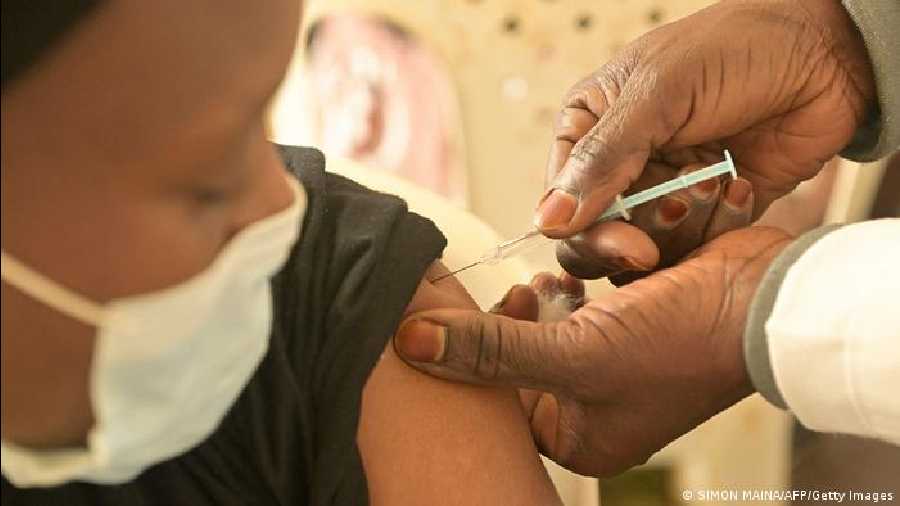Due to the global increase in coronavirus cases caused by the BA.5 subvariant, the World Health Organization (WHO) currently classifies it as a "variant of concern." Experts at Germany's top health agency have warned that infections will likely increase this summer.
Germany's Robert Koch Institute (RKI), the country's national public health organization, reported on June 9 that the omicron subvariants BA.4 and BA.5 are growing faster than all other variants and concluded the two could soon be responsible for the majority of the country's cases.
The BA.5 variant already accounts for 10% of current infections — twice as many as last week.
BA.5 started in South Africa
The BA.5 variant had already raised concerns in South Africa in early May, but the subsequent wave was relatively small and is currently subsiding.
In Portugal, however, BA.5 is already responsible for 80% of all new infections. The variant is more contagious than its predecessors, like BA.2. Along with being harder for neutralizing antibodies to locate, BA.5 is more transmissible than other omicron subvariants.
Like other omicron subvariants, BA.5 infections are milder than infections with other COVID strains, like delta.

Cases in Germany could pick up again like they did in the winter, health experts warn Deutsche Welle
Do boosters protect against omicron infection?
The protection provided by COVID vaccines or past infection slowly decreases over time as antibody levels drop.
That means no one is fully protected from BA.5 — new infections are possible despite vaccination and/or past infection and occur more frequently than with past variants.
But there have been fewer deaths and hospital admissions. According to experts, this is because many millions of people are vaccinated or have antibodies, making the general immunity of the population higher than at the start of the pandemic.
Nevertheless, the RKI recommends that the elderly and people in risk groups get another their booster vaccine for extra protection.
More infections but less deadly
The COVID vaccines currently available target the variant of the spike protein that was active at the beginning of the pandemic.
However, the virus has evolved and sharpened its ability to evade the antibodies offered by the vaccines.
Despite that, BA.4 and BA.5 appear to be less dangerous. Some experts say that's because the new variants are more likely to infect the upper respiratory tract than the lungs, causing fewer deaths than earlier in the pandemic, when the lungs were more impacted.

Vaccines may not be able to protect well against mild BA.5 infection Deutsche Welle
Protection against infection with omicron
The period of time between infection and initial symptoms is shorter in omicron variants than in delta — around three days on average.
The protection offered by a basic two-dose vaccine against omicron infection is not optimal, but it still protects against severe cases of illness. A booster vaccine ensures that more antibodies are formed, offering more protection.
Although omicron with its various subtypes is usually much milder than delta, severe symptoms can also occur in rare cases. Additionally, it is not yet clear what long-term consequences an omicron infection can have.











